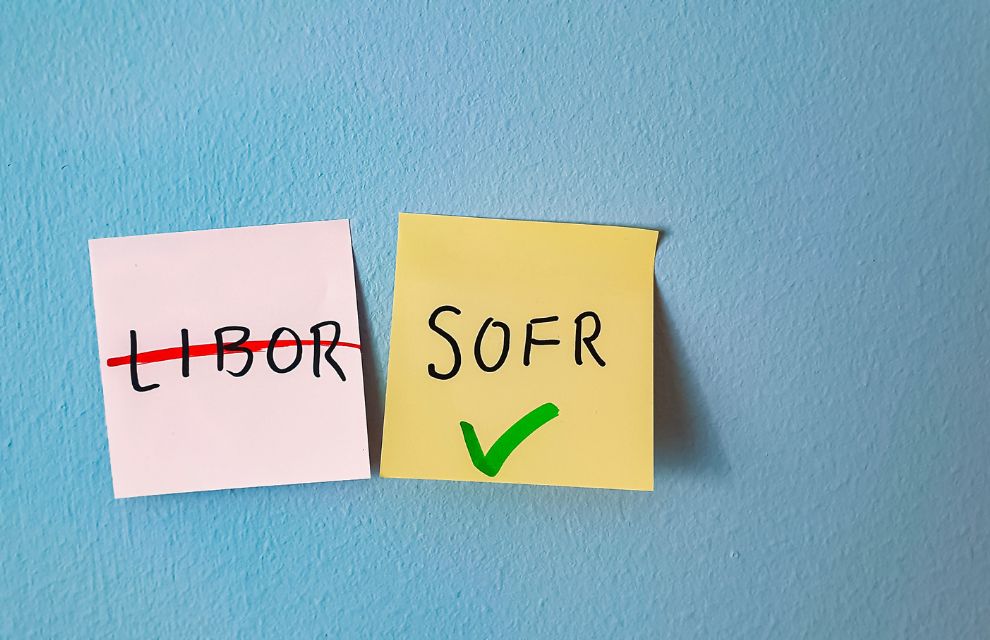FSB tells market to act now on USD LIBOR transition
27 April 2023 Switzerland
 Image: AdobeStock/Nicholas
Image: AdobeStock/Nicholas
The Financial Stability Board has urged market participants to act promptly to ensure that their USD LIBOR-linked contracts are transitioned to a new reference rate by the end of June deadline.
With the end date for USD LIBOR transition now less than three months away, the FSB is encouraging the market to finalise the transition of any legacy USD LIBOR to prevent a “pile up” towards the end of June when representative LIBOR rates will no longer be available.
The Board, which coordinates the actions of national regulatory authorities and standards-setting bodies in minimising risk to financial stability, observes that good progress is being made in managing this transition from USD LIBOR to alternative reference rates, including the Secured Overnight Financing Rate (SOFR).
Although this is particularly the case in FSB jurisdictions, it believes there is room for faster progress in other locations where awareness of the USD LIBOR transition is relatively low.
Between now and the end of 2023, firms with USD LIBOR exposures should adopt the measures set out in the FSB’s Global Transition Roadmap and step up their momentum in transitioning to robust reference rates.
With more than 90 per cent of USD LIBOR exposures being linked to derivatives contracts, the FSB continues to encourage wide adoption of the ISDA protocol and engagement with CCP conversion events as primary mechanisms for ensuring orderly transition of the derivatives market.
For contracts referencing USD LIBOR that cannot be amended to adopt a suitable alternative benchmark rate, the US LIBOR Act, passed in March 2022, specifies that references to overnight, one, three, six and 12-month USD LIBOR in these contracts will be replaced by a SOFR-based benchmark identified by the Federal Reserve.
The UK Financial Conduct Authority (FCA) has indicated that it will require publication of one, three and six-month USD LIBOR settings to continue after the end of June deadline to cover outstanding legacy contracts that are not covered by US federal legislation.
These will be published using a “robust, unrepresentative synthetic methodology” based on the CME Term SOFR Reference Rate and the ISDA fixed spread adjustment, providing a short period of extra time to complete the transition for these contracts.
The FCA will allow synthetic settings to be applied for all legacy contracts, apart from cleared derivatives, up to 30 September 2024.
However, it emphasises that market participants should not rely on the continued availability of synthetic LIBOR rates as justification for slow transition from their legacy USD LIBOR-referenced contracts.
“Any synthetic LIBOR provides only a short-term, temporary bridge to alternative robust reference rates,” says the FCA. “Market participants need to continue to take active steps to address existing legacy contracts in preparation for the permanent cessation of USD LIBOR rates.”
With the end date for USD LIBOR transition now less than three months away, the FSB is encouraging the market to finalise the transition of any legacy USD LIBOR to prevent a “pile up” towards the end of June when representative LIBOR rates will no longer be available.
The Board, which coordinates the actions of national regulatory authorities and standards-setting bodies in minimising risk to financial stability, observes that good progress is being made in managing this transition from USD LIBOR to alternative reference rates, including the Secured Overnight Financing Rate (SOFR).
Although this is particularly the case in FSB jurisdictions, it believes there is room for faster progress in other locations where awareness of the USD LIBOR transition is relatively low.
Between now and the end of 2023, firms with USD LIBOR exposures should adopt the measures set out in the FSB’s Global Transition Roadmap and step up their momentum in transitioning to robust reference rates.
With more than 90 per cent of USD LIBOR exposures being linked to derivatives contracts, the FSB continues to encourage wide adoption of the ISDA protocol and engagement with CCP conversion events as primary mechanisms for ensuring orderly transition of the derivatives market.
For contracts referencing USD LIBOR that cannot be amended to adopt a suitable alternative benchmark rate, the US LIBOR Act, passed in March 2022, specifies that references to overnight, one, three, six and 12-month USD LIBOR in these contracts will be replaced by a SOFR-based benchmark identified by the Federal Reserve.
The UK Financial Conduct Authority (FCA) has indicated that it will require publication of one, three and six-month USD LIBOR settings to continue after the end of June deadline to cover outstanding legacy contracts that are not covered by US federal legislation.
These will be published using a “robust, unrepresentative synthetic methodology” based on the CME Term SOFR Reference Rate and the ISDA fixed spread adjustment, providing a short period of extra time to complete the transition for these contracts.
The FCA will allow synthetic settings to be applied for all legacy contracts, apart from cleared derivatives, up to 30 September 2024.
However, it emphasises that market participants should not rely on the continued availability of synthetic LIBOR rates as justification for slow transition from their legacy USD LIBOR-referenced contracts.
“Any synthetic LIBOR provides only a short-term, temporary bridge to alternative robust reference rates,” says the FCA. “Market participants need to continue to take active steps to address existing legacy contracts in preparation for the permanent cessation of USD LIBOR rates.”
NO FEE, NO RISK
100% ON RETURNS If you invest in only one asset servicing news source this year, make sure it is your free subscription to Asset Servicing Times
100% ON RETURNS If you invest in only one asset servicing news source this year, make sure it is your free subscription to Asset Servicing Times



